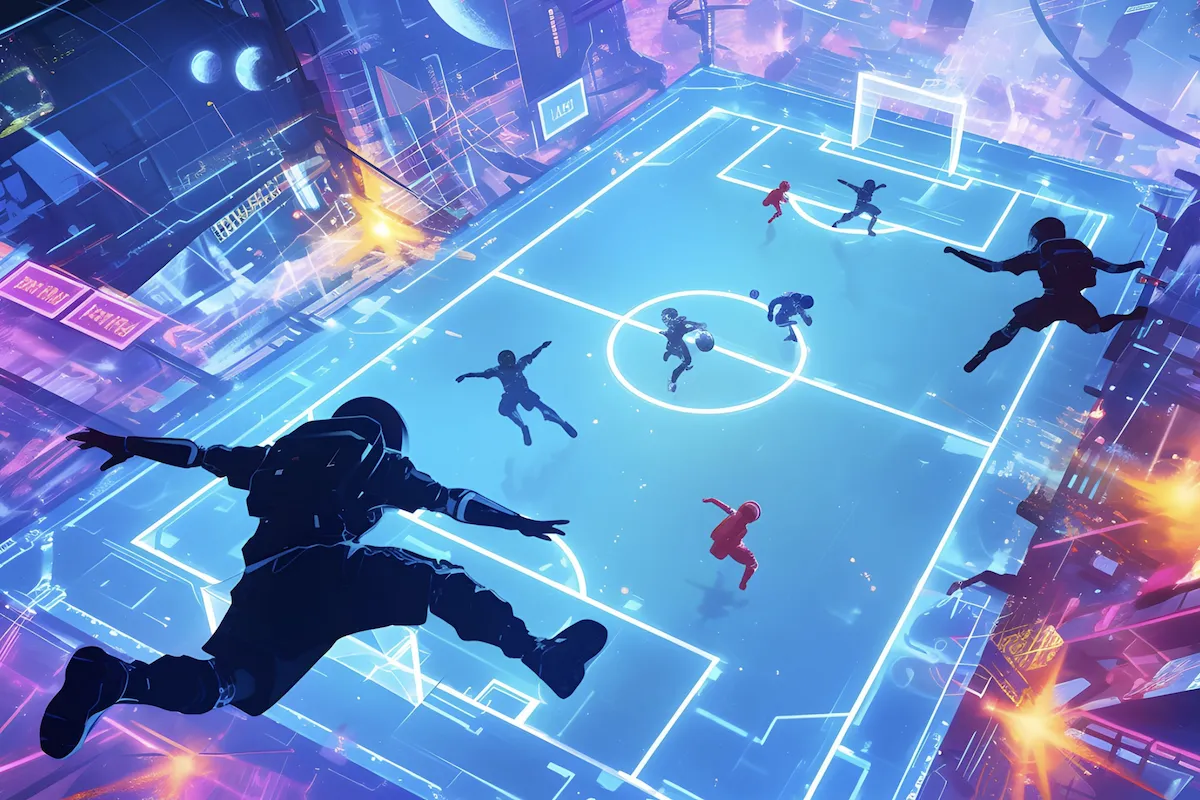Millions of players in China lost access to popular games like World of Warcraft as Blizzard Entertainment’s Chinese servers went offline after 20 years. This marked the end of an epoch for fans of the epic title, after Blizzard’s licensing agreement with their local partner NetEase expired and no new one was reached. That agreement had also covered titles such as Hearthstone and Diablo III since 2008.
Hundreds of thousands were devastated. Some lamented that they had grown up with the game, and others called WoW “my first love,” reflecting the all-pervasive sense of loss in the Chinese gaming community. Fans of games like Fortnite, Call of Duty, and League of Legends, all stellar Web2 titles, would feel the same if the decision were made to pull the plug, for whatever reason.
Another issue with Web2 games is ownership. Players can buy skins, characters, and other virtual assets, but these items have no utility outside the developer-controlled ecosystem and cannot be transferred. Their use is confined to the respective title.
A landmark shift from observation to true ownership
The transition to Web3 marks a shift from players being mere observers at the mercy of developers or corporations to active participants in rich gaming ecosystems. Blockchain technology has given rise to decentralized platforms that enable ownership of in-game items, which keeps participants competing and playing longer. A survey by Immutable found that almost half of Web3 gamers played for more than 10 hours a week, while Web2 gamers played for about 7.5 hours.
Ownership is one factor that makes players more invested in the games they play, and Mythical Games is among the pioneers of this shift. NFL Rivals, launched in an official partnership with the NFL, allows players to manage NFL teams and trade unique NFTs. The game’s dynamic and casual nature quickly caught NFL fans’ attention. NFL Rivals is Mythical Games’ flagship crypto-based mobile game, and has been downloaded on iOS and Android more than 7 million times.
Mythical has raised almost $300 million from investors like Andreessen Horowitz, ARK Invest, Animoca Brands, and Michael Jordan since 2018. In 2021, Andreessen Horowitz led a $150 million Series C round, reaching a $1.25 billion valuation. Company CEO John Linden has had leadership roles at Activision Blizzard, including Call of Duty and Skylanders franchises. His experience with Web2 led him to initiate the transition, of which cofounding Mythical Games has been a key part.
The gamer-centric approach of Web3 translates to ownership of asset collections without in-depth blockchain knowledge. Mythical’s in-game blockchain marketplace allows gamers to buy, sell, and trade digital assets across platform titles. Players use MYTH tokens for transactions on the marketplace and governance, and developers can use the Mythical platform to plug blockchain features and NFTs into their games. That said, users can play NFL Rivals without understanding NFTs; it’s only necessary for those who want to engage with ownership.
The game was downloaded almost a million times within a month of launching and ranked #1 in sports and action categories on the App Store. Overall revenue increased by 10-15% after the platform added secondary trading to NFL Rivals, reflecting players’ conviction that Web3 assets are valuable. Players can merge or burn assets and then trade new ones.
A win-win for players, developers, and the economy through in-game asset trading
Mythical launched Quick Trades, where players agree to an asset trade without any money changing hands, and cleared them with Apple and Google, as a result of which they are available directly in the mobile game. The deals are priced in the marketplace in real time. According to Linden, the NFL Rivals’ secondary market increased from 100 to 7,000 transactions a day soon after Quick Trades became available.
Essentially, Mythical buys a card from a seller and then sells it to a buyer in real time. Multiple parties can be involved in a single transaction, but it’s an even trade to the gamer. Game developers also benefit as they generate transaction fees on these trades, driving a lot of value to the economy.

Smart contracts handle and secure transactions across Web3 titles
Smart contracts underpin, process, and secure asset transactions in Web3 games. These self-executing blockchain programs do this by writing the terms of the respective agreement into lines of code. They automate transaction management, ensure each transaction’s authenticity, enforce rules, manage prize pools, and can even automate dispute resolution.
Characters, skins, and weapons are stored as NFTs or cryptocurrencies on a decentralized ledger, and players link blockchain wallets to the game. Wallets serve as gateways for collecting rewards, managing in-game assets, and performing trades, and can hold assets earned in the game. Blockchains enable verifiable statistics and transparent leaderboards, ensuring trustless exchanges and transparent ownership.
The innovative technology facilitates a higher quality of games coming to market. It’s a fact that the number of blockchain game companies has declined because going mainstream is harder and takes longer than many expect. Yet, games from successful developers that have been in the works for years eventually arrive. One of them is Pudgy Party, a Fall Guys-type game that will be available on Android and iOS. Players will use clothes, hats, glasses, and other accessories, and holders of Pudgy Penguins NFTs might be able to use them in the game.
Decentralized sports, powered by the people
DAOs are changing sports by giving power to the community instead of investors. A DAO enables fans to govern a sports team and decide on budgeting, hiring, marketing, and sponsorship. It can build a decentralized sports league where teams compete based on fair and transparent incentives and rules.
DAOs can also organize and fund championships, tournaments, or charity matches involving multiple sponsors and stakeholders, ultimately fostering a diverse and vibrant sports community. This is a nice alternative to supporting a sports team while not being able to make any decisions affecting it and standing on the sidelines as major stakeholders sell star players and drain funds from the club.
While players have always supported ownership, their focus has shifted from short-term profit to long-term engagement. The once-successful play-to-earn model has declined, with player interest dropping and Web3 game funding falling by over 70% in the first quarter of 2025. The model made the mistake of tying rewards to token prices, making gameplay dependent on unstable markets.
Verified digital collectibles let fans own the moment
Digital sports collectibles represent ownership of player highlights, digital trading cards, and other unique sports-related assets, verified using blockchain technology. The thrill of rarity is behind the appeal of both physical and digital sports memorabilia. However, unique versions and limited editions associated with specific achievements or milestones took this concept a step further.
Each digital asset’s unique code guarantees a limit, making it highly desirable for collectors. Unlike traditional memorabilia, which are vulnerable to forgery, blockchain verifies digital collectibles’ scarcity and authenticity, and they can be displayed without physical storage concerns.
Bringing games to mobile widens global access to competitive sports
The ubiquity of mobile devices has made participating in Web3 gaming easier for a wider range of players. Soccer has billions of fans worldwide. Mythical Games brought a Web3 twist to the sport with FIFA Rivals, attracting a larger, mainstream audience not necessarily familiar with blockchain gaming.
Mobile gaming is the largest market segment by player count and revenue, and launching a high-profile Web3 game on mobile significantly lowers entry barriers compared to console or PC-only titles. FIFA Rivals, which has been approved and licensed by FIFA, allows participants to collect player cards and build a fantasy team, engage in active or simulated matches against other players or AI, and train, upgrade, or strategize with the players they have collected.
Interconnected worlds are the next frontier for athletes, players, and developers
The prospects for the latest generation of Web3 games are inspiring. Cross-game athlete NFTs are emerging as a novel application in gaming and sports. These NFTs would allow athletes to represent themselves across different virtual worlds and potentially integrate into various games. A holder of a rare NFT in one game might use it as a collectible in another, increasing the number of games and activities they participate in.
Cross-game NFTs may open up new marketing opportunities for game developers, as they will collaborate with other platforms and titles to feature them, building an interlinked ecosystem that promotes multiple games at the same time. Such integrations would create a more expansive metaverse, where experiences and assets can flow freely instead of being confined to a single game, enhancing the efficiency of marketing efforts.



